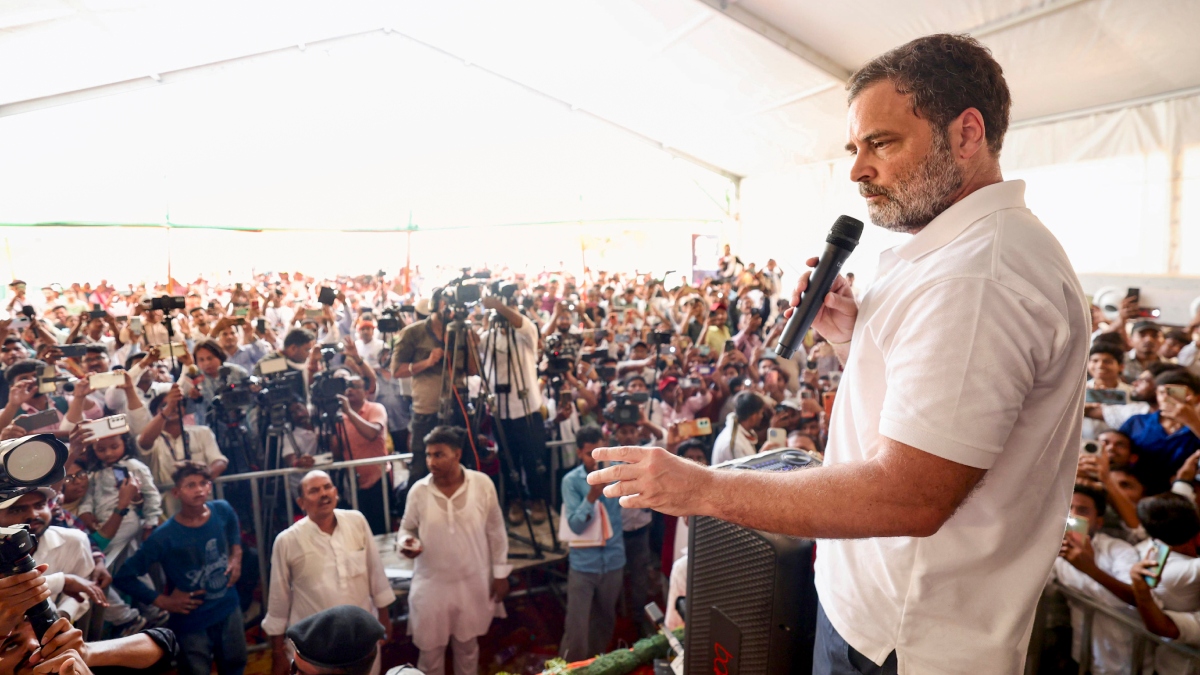Rahul Gandhi’s district-level reforms spark unease among senior Congress leaders
 Leader of Opposition Rahul Gandhi addresses a gathering | PTI
Leader of Opposition Rahul Gandhi addresses a gathering | PTI
Congress leader Rahul Gandhi is pushing for an overhaul of party units, particularly at the district level, to strengthen the organisation. The party’s Gujarat unit has already witnessed these changes as new district presidents were appointed. However, like most reforms, they were leading to disquiet among the old timers in states where similar moves are afoot.
Under this push for decentralisation, observers from the All India Congress Committee (AICC), often hailing from outside the states they are assigned to, are tasked with shortlisting candidates for district president roles. Several senior leaders believe this approach overlooks crucial nuances of local politics and risks undermining long-standing party dynamics.
“The observers coming from other states don’t fully understand our local contexts. Their lists are bound to miss people who’ve worked on the ground for decades,” said a party leader.
Some of the state leaders argue that they will get sidelined within the new structural design of the organisation as they have been following the old rulebook and have been part of the old ecosystem.
For instance, they have been keeping a good relationship with top leaders of the state or centre who used to be powerful enough to recommend them for positions within the party or elections. Many of these senior leaders have built their network and influence by placing loyalists in key posts across districts. The new set-up threatens this power framework by giving grassroots leaders more say. Potentially bypassing well-established loyalties and the old guard's networks.
This is precisely what Rahul Gandhi’s reforms want to challenge to reward the meritorious and pick up new leaders who can take on the challenge from the BJP and other regional outfits. The mainstream parties like the BJP has been aggressive in building its organisation, bringing younger generation leaders to lead state units so that parties stay relevant as the very nature of political management and electioneering is undergoing change.
A Congress leader said, "We have worked all our life with certain leaders and have been expecting ascension in our careers. But the new system has eroded a lot of expectations.
Party watchers believe the discontentment also stems from the fact that senior members had programmed themselves to operate in a certain way for decades. Now, with all those processes set to change, it is unsettling for these leaders. “The new system could give rise to a new ecosystem, potentially sidelining those who were part of the old one,” an expert said.
"The reforms are correct and the senior leaders being displeased with the new process is also right," an AICC secretary said. "Those people who have remained with the party in the most difficult times are getting excluded with the new process."
Notably, the new selection process will give immense power to the new district presidents, who will not only control the communication of their districts but also be in direct touch with the AICC. Finally, they will also get to recommend potential candidates to contest elections.
It is a difficult balance which the grand old party needs to achieve where the party faithful are also listened to when the party seeks to reorient itself by picking new district presidents who will act as core pillars in the party’s organisational reform.
India